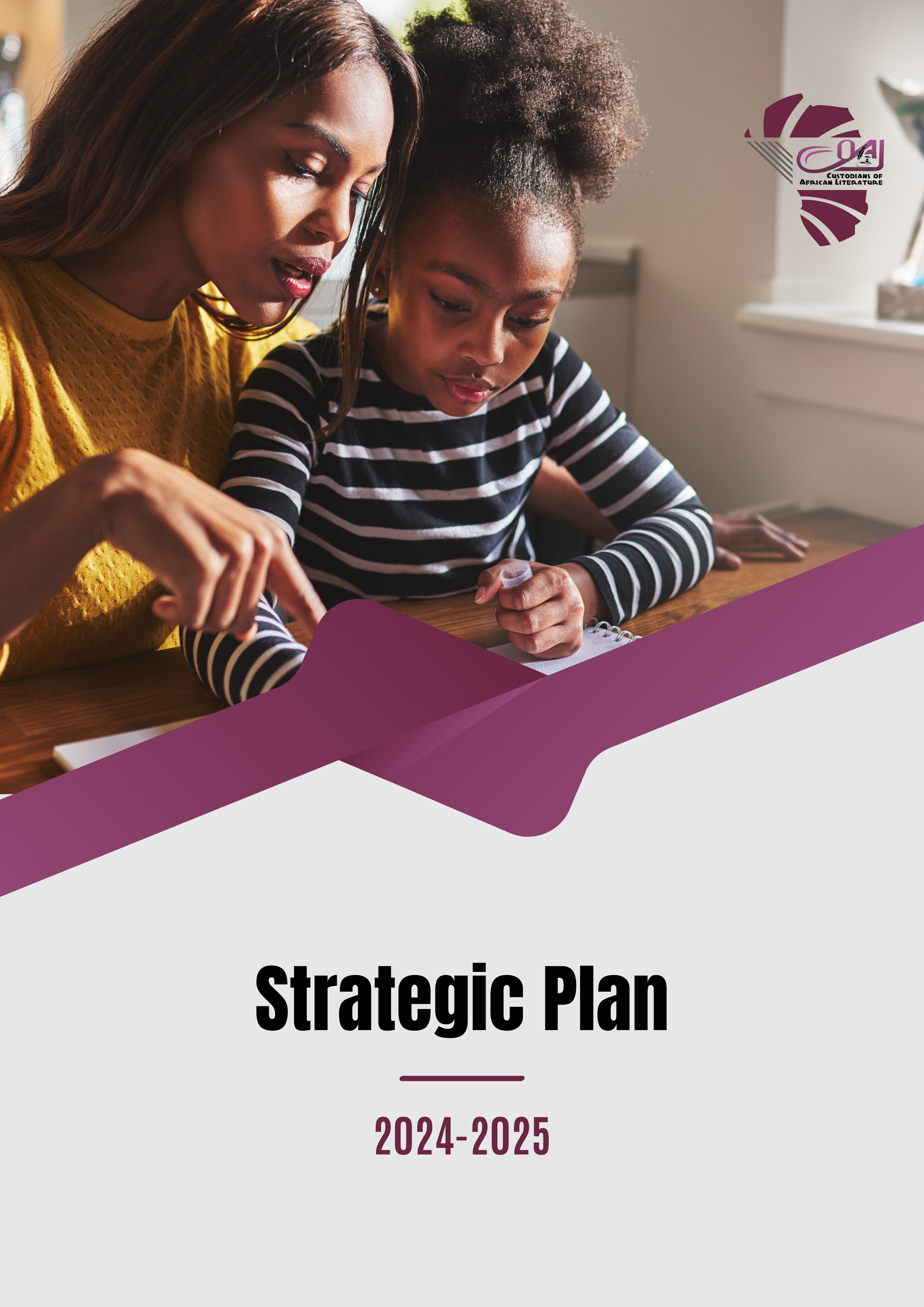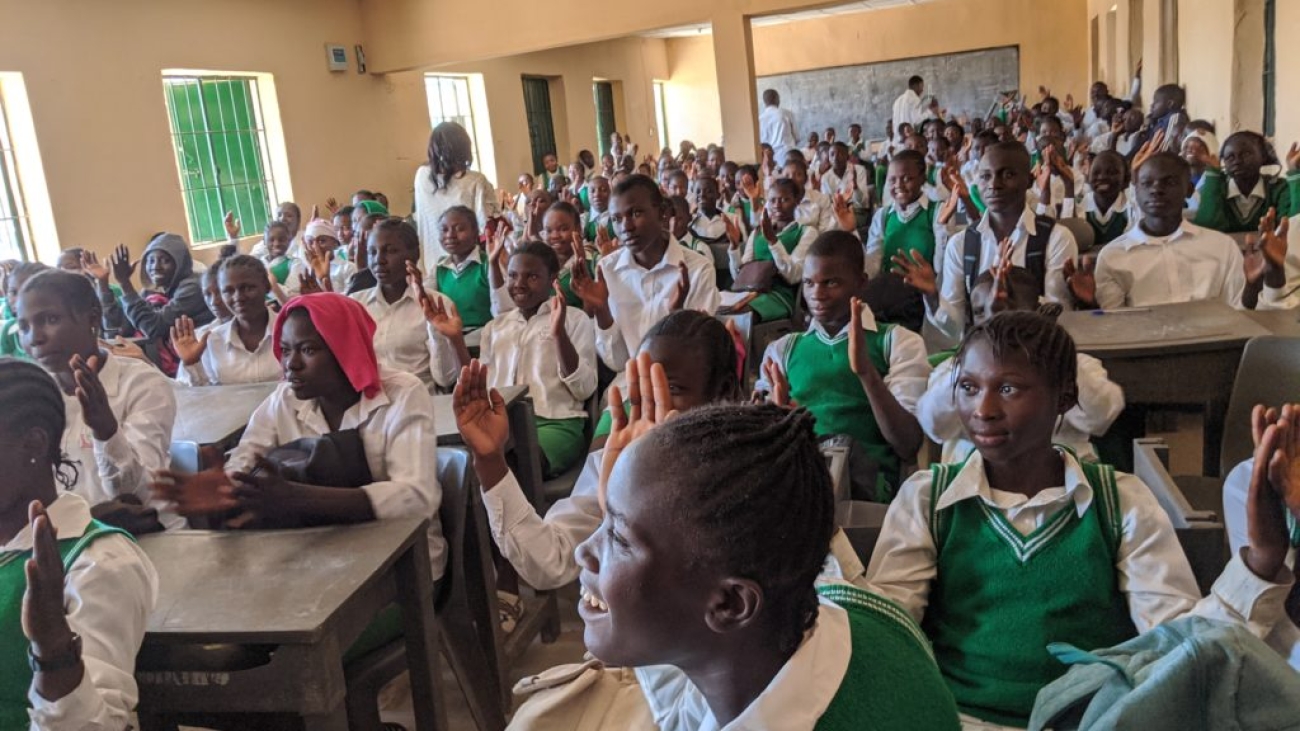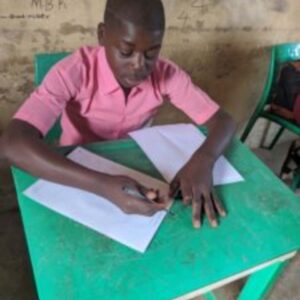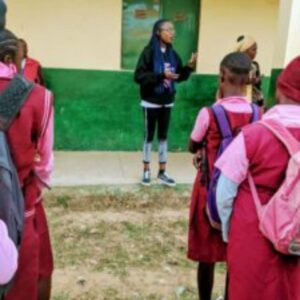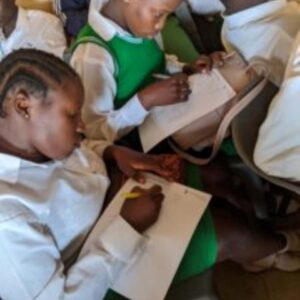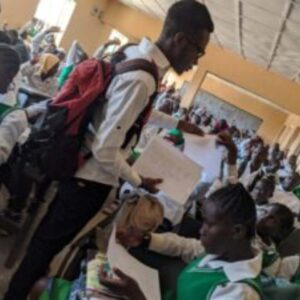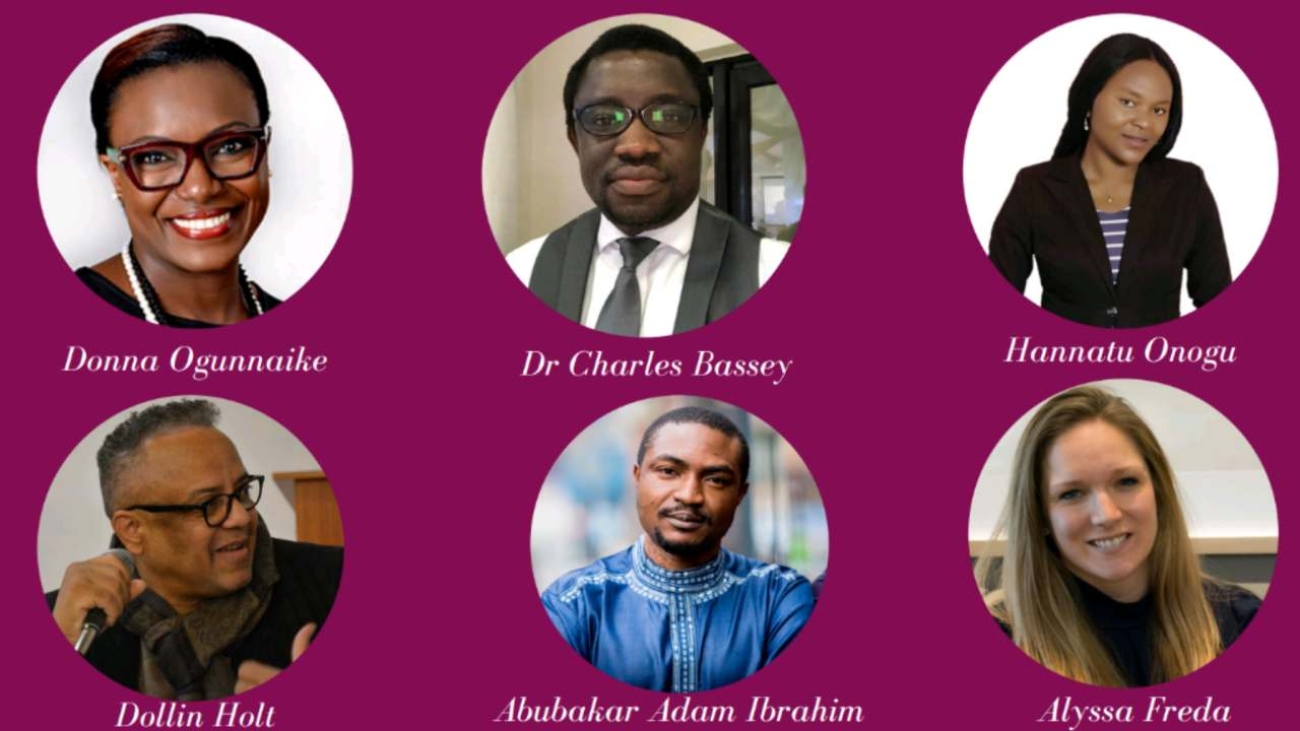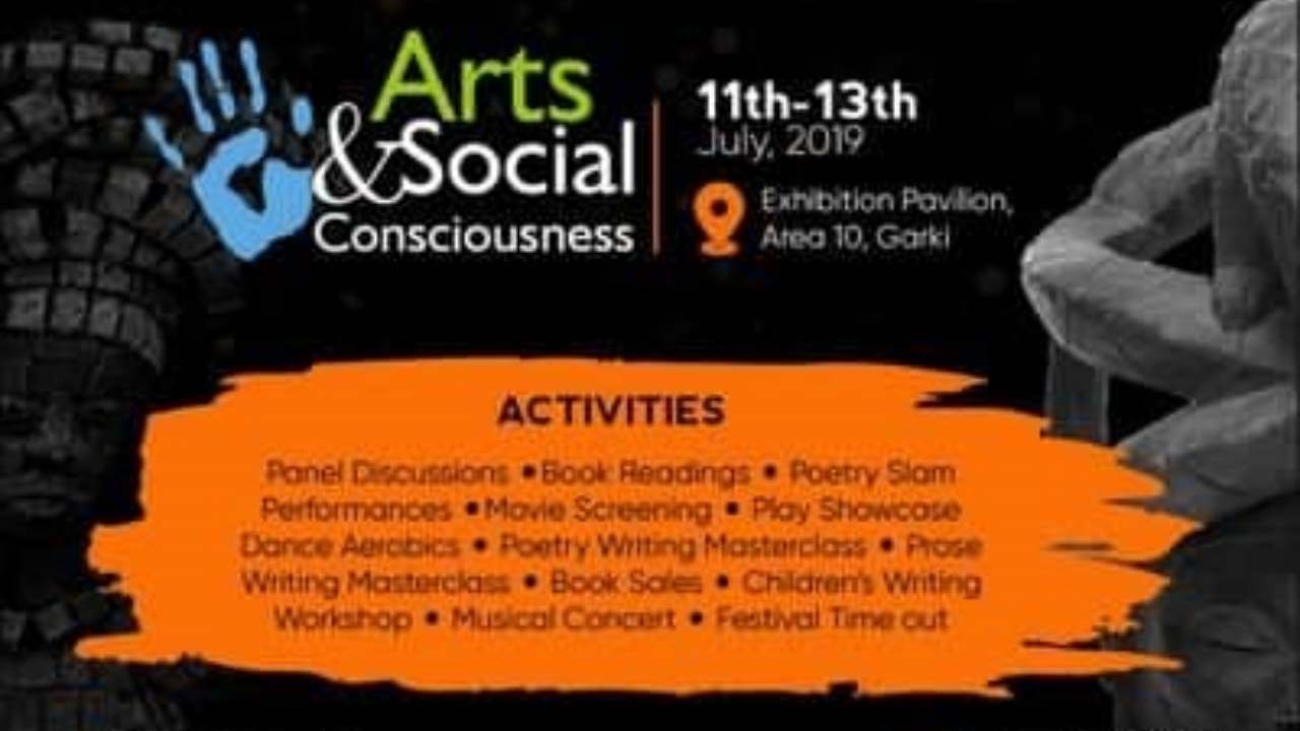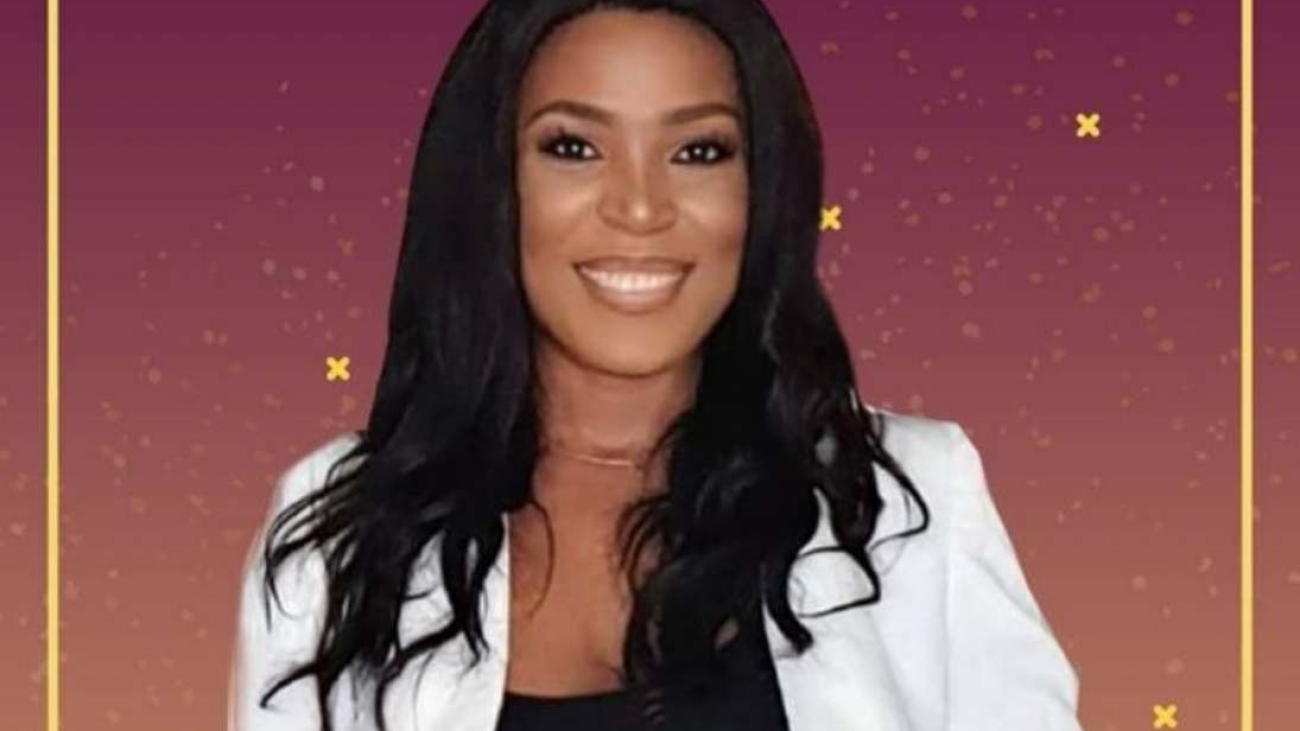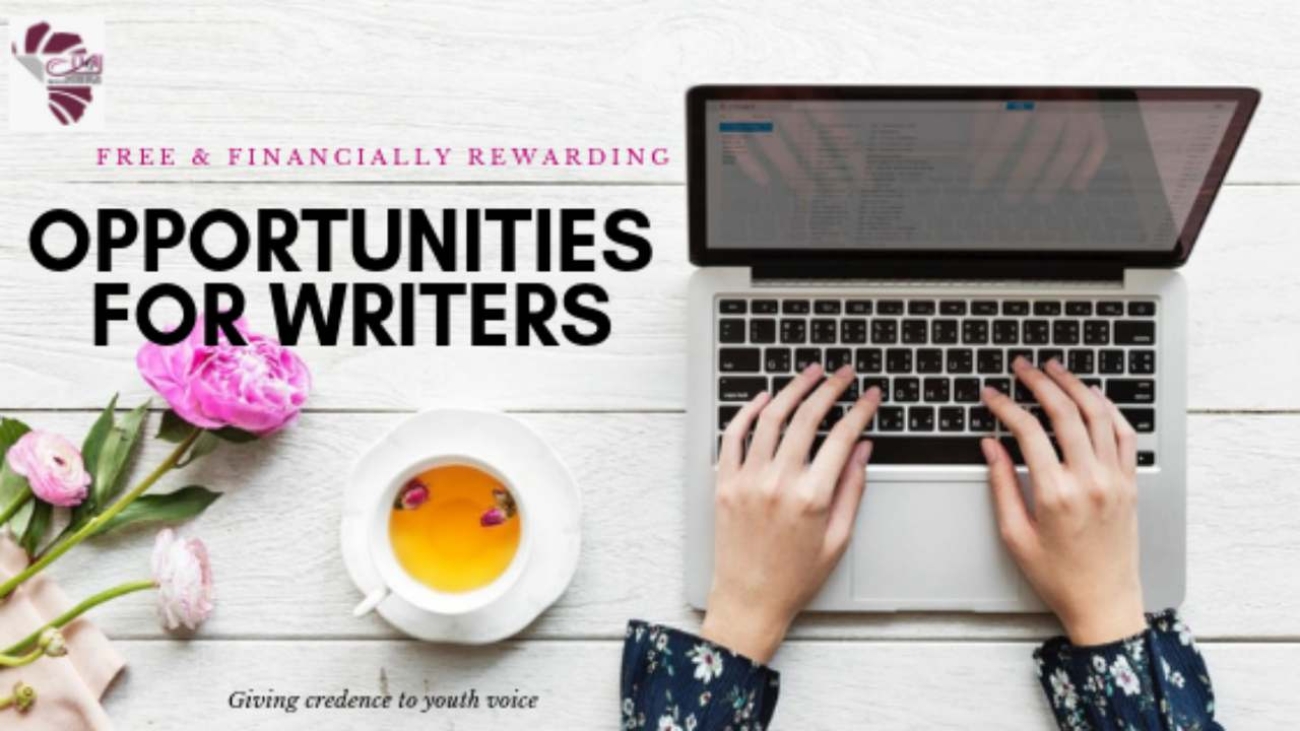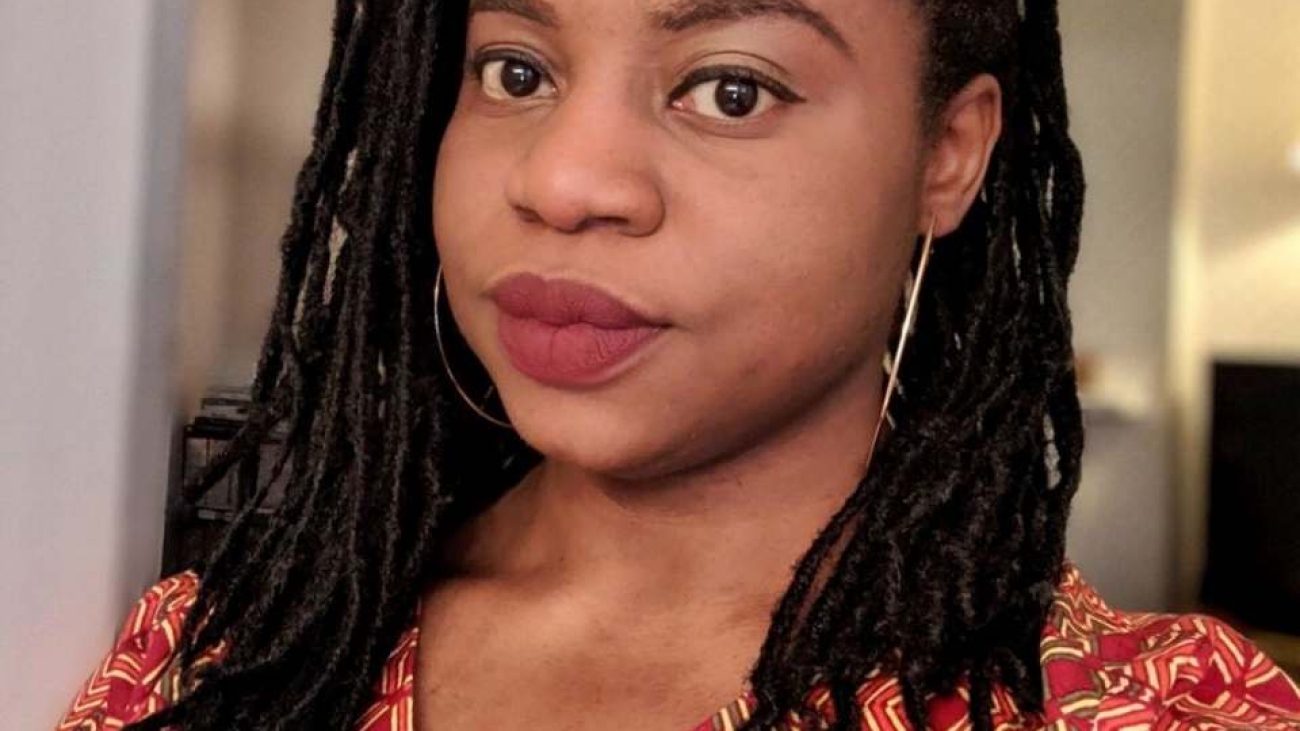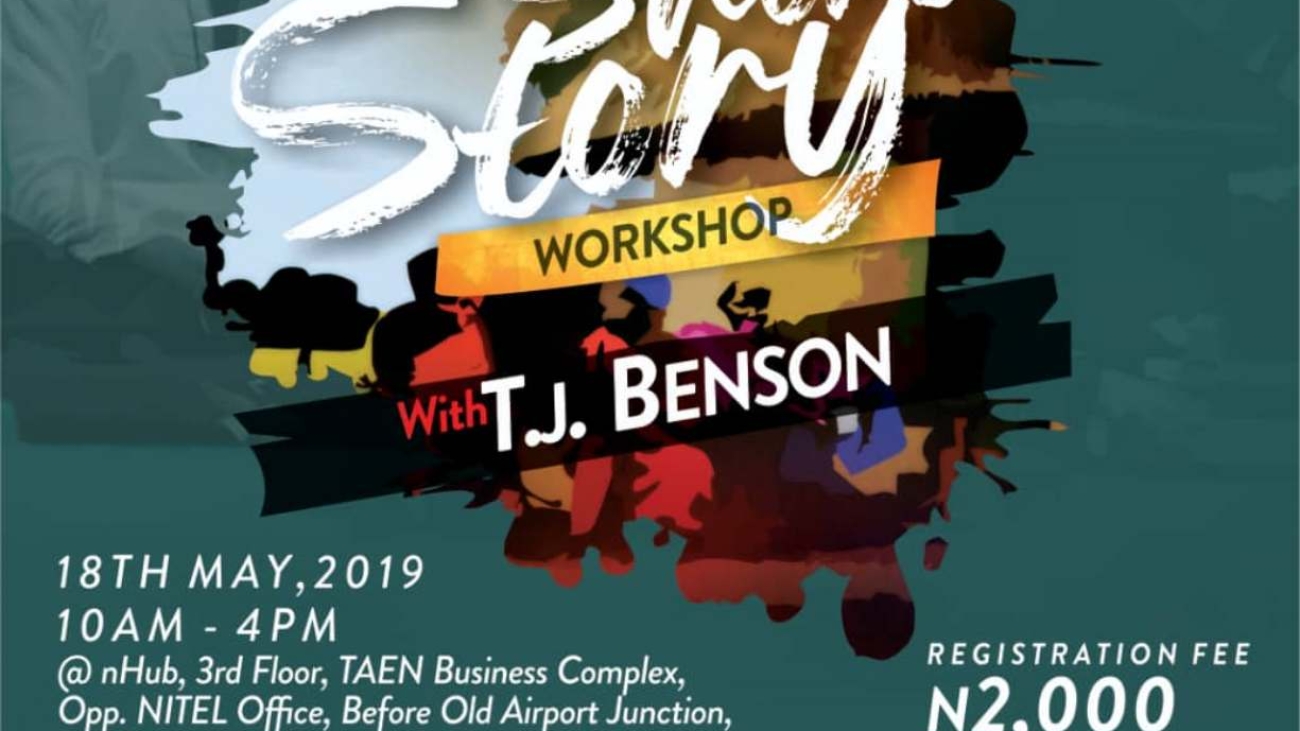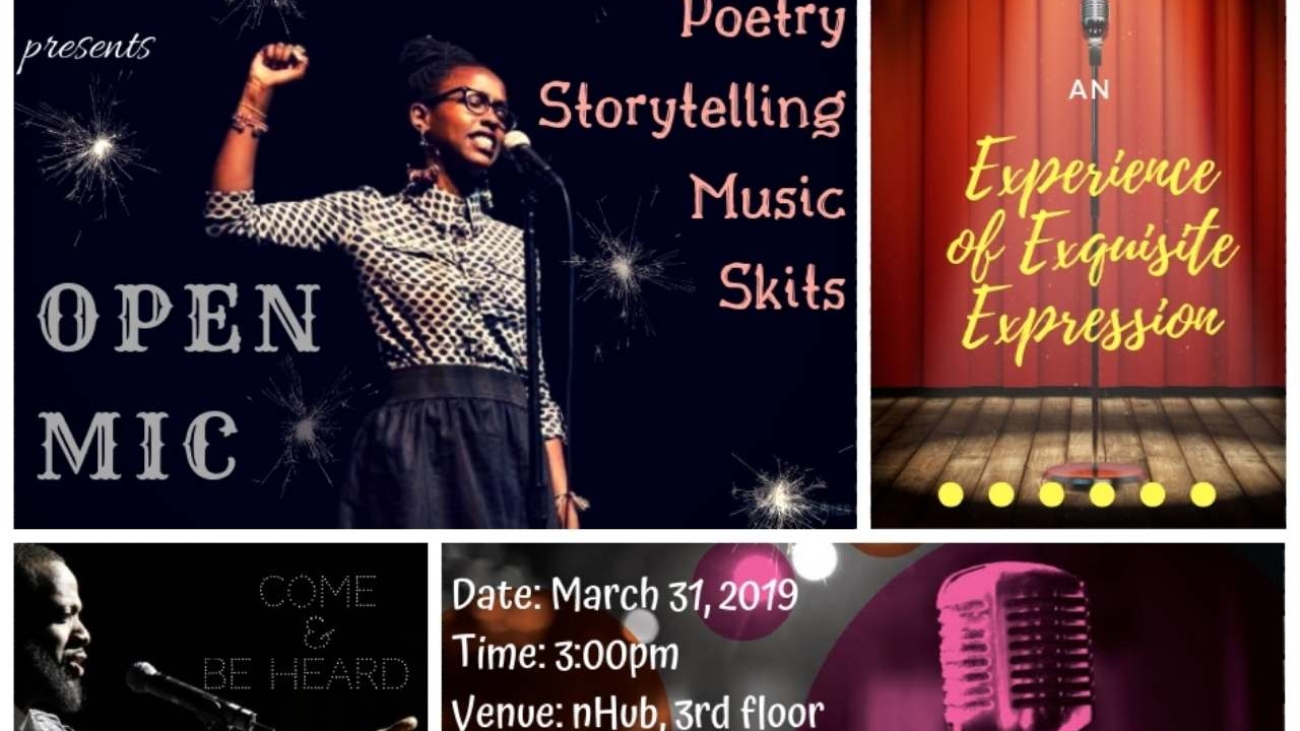COAL Literary School Clubs
The Custodians of African Literature (COAL) embarked on a pre-program survey exercise in January 2020, the first step to her COAL school club project. The COAL Literary school club project is aimed at improving literacy and reading culture among children and young adults in our quest to bridge the education inequity gap through books and positive youth and adult partnership. Our goal is to encourage a reading culture among secondary school students; introduce them to books outside their curriculum, especially books that will encourage their passion for literary arts such as poetry, fiction and speech writing, public speaking and performance arts. The COAL school project also seeks to build leadership skills in children and teenagers by supporting them in organizing their own literary events that addresses issues young people face in their communities.
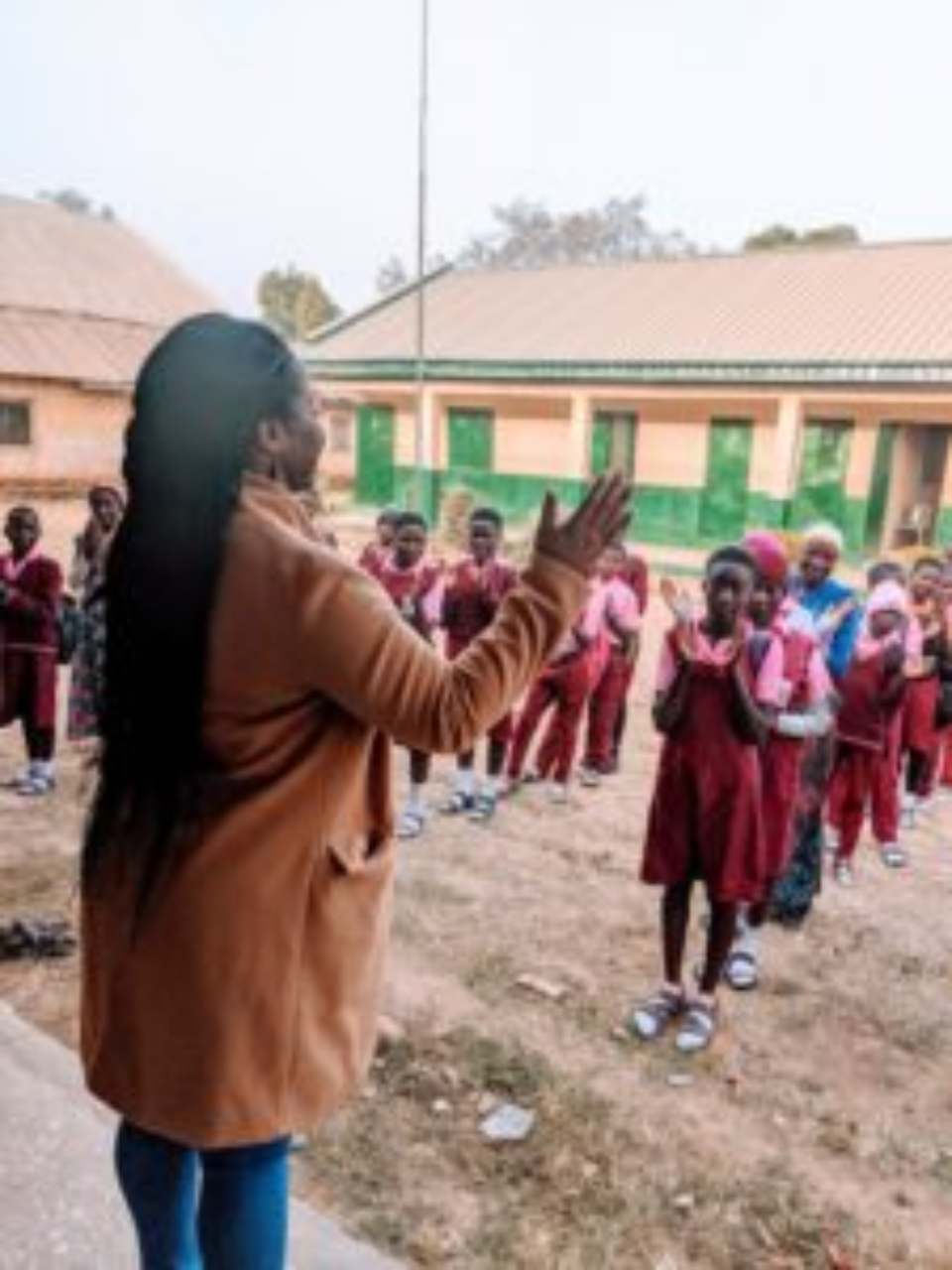
On Monday, 20th and Wednesday 22nd January 2020, COAL visited G.S.S. Rot Norong and G.S.S Giring in Jos, Plateau State Nigeria with the pre-program surveys to engage with interested students. This move was necessary to help inform how our programme will be structured to fit the needs of the students, and get books inline with their area of interest.
COAL had the opportunity of introducing herself to the students of the schools at the assembly ground with the support of the school principals and resident English and Literature teachers. COAL’s Executive Director, Andrew Patience, explained the reason for the team’s visit alongside a COAL volunteer, Adekunbi Lardo, they introduced performance poetry to the students with individual performances. This gave the students an idea of what literary activities in the club would look like. After the session with the general students at the assembly ground, the COAL team visited students in their various classes. The classes visited were Jss1, Jss2, Jss3, SS1 and SS2. At the classroom level, there was further engagement inclusive of some interactives which helped in creating a comfortable atmosphere for interaction, after which the survey forms were explained to the students and they filled and returned them to the team. The experience was enlightening, exciting and fun. It served as an eye opener to the team as regards the struggles of students trying to learn in very unconducive conditions. Our visit to the two school highlights various areas of focus that must be addressed especially with students in public schools in Nigeria and the need for advocacy on educational equity and human rights assessment of students in public schools.
Hence, COAL is calling on all lovers of change, literature, community service and the community at large to join us in supporting these youth. We solicit your support in form of book donations, monetary support to aid in getting more books for the projects and your time in volunteering. We believe that this is the first of many schools to be visited and we know it will go a long way in changing the community by engaging these children young.
You can make your donations here http://www.coalng.org/donate/
COAL Highlights Dedication To Diversity With New Board Members
The Custodians of African Literature COAL is pleased to announce the appointment of six new board members as an addition to our goal of diversifying our leadership team. COAL is rounding out our organization’s leadership and advisory team with three new female and three male professionals. We recently developed a new strategic plan, which includes a commitment to expansion that ensures a diversified leadership that reflects both the population served and the goal of building new frontier partnerships with people and organizations from around the world.
MEET OUR NEW BOARD MEMBERS
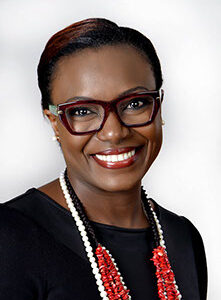
Donna Obaseki-Ogunnaike is an Energy Law expert, poet, writer and a Partner of ACAS-Law (1st tier Nigerian law firm) possessing over 17 years of experience in Energy and Corporate Commercial Law practices. She consults extensively on a wide range of investment issues for international exploration, oil service, and multinational trading companies. She advises on strategy, planning and development solutions to project specific ventures within the oil and gas industry.
Her contributions to the youth and society has earned her the honour of the Children’s Playground at the Yitzhak Rabin International School, Port Harcourt Rivers State being named the “DONNA OBASEKI-OGUNNAIKE CHILDREN PLAYGROUND”. She is also currently the youngest recipient of the Yitzhak Rabin International Award for Excellence in Leadership (2014).
Apart from law practice, Donna is a well recognized poet and theatre practitioner.
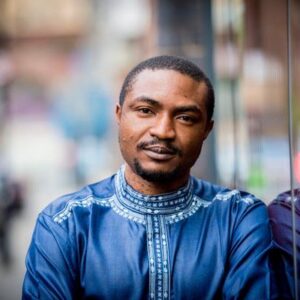
Nigerian writer and journalist, Abubakar Adam Ibrahim is most recently the winner of the 2018 Michael Elliott Award for Excellence in African Storytelling for his creative non-fiction piece, All That Was Familiar, (Granta, 2017), reporting on the hardships faced by women in Northeast Nigeria displaced by the violence of Boko Haram.
Abubakar is the author of the award-winning novel Season of Crimson Blossoms (published by Cassava Republic Press, London in 2016 and Parresia Publishers, Lagos, 2015), which won the 2016 Nigeria Prize for Literature. The novel has been translated into French, German and Tamil among others. He has been invited to speak at every major literature and journalism festival around the world. He lives in Abuja, Nigeria, where he is the Features Editor for the Daily Trust newspaper.
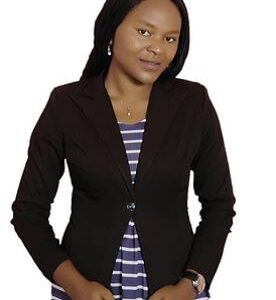
Hannatu Onogu is a passionate humanitarian and an environmentalist working in various communities in Nigeria. She is currently the Business Developer/Coach with Solar Sister Nigeria, serving as the Northern Manager where she mentors and network with women in clean and renewable energy. She has been involved in diverse Developmental initiatives and Social Projects; she garners experience and professional skills in Strategic planning, Grant resourcing, Management, and administration.
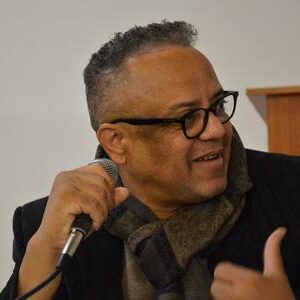
Dollin graduated from the Universities of East London and Bedfordshire with post-graduate degrees in Forced Migration and Refugee Studies (MA), International Human Rights Law (LLM) and Media Representation (MA by Research)
He is widely travelled and lives in Luton in the United Kingdom, where he currently works as an Adviser/Work-Coach for the Department of Works and Pension. Dollin is also the founder of Caprecon Foundation and a fellow of the following bodies: the Royal Society of Arts, Tom Lantos Institute in Budapest, Institute of Training and Occupational Learning and was a member of the Management Committee, Network for Peace, England and currently a member of the Advisory Board of the West African Academy of Public Health.
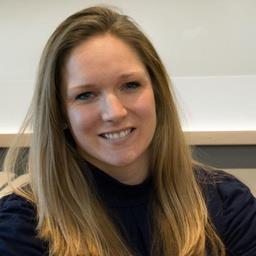
Alyssa Freda has 11 years of experience in managing youth after-school programs and athletics in the United States. She has experience in growing programs in both size and scope. Alyssa has a passion for travelling and International volunteering, she recently received a Fellowship Grant from her organization to teach children in Tanzania.

Dr. Charles Bassey has over two decades of leadership and mentoring experience and currently works full time with the Central Bank of Nigeria as Head, Security Research and Development. He studied MSc in Psychology at the University of Roehampton, further specializing in Organizational Psychology (MSc) at the University of London after completing the undergraduate level certificate course in Psychology at the University of Derby.
COAL is glad to have these professional additions to our organization as we hope for expansion and serve youth in our community. You can read more about our team here.
Recap Of Alifest: The Experience
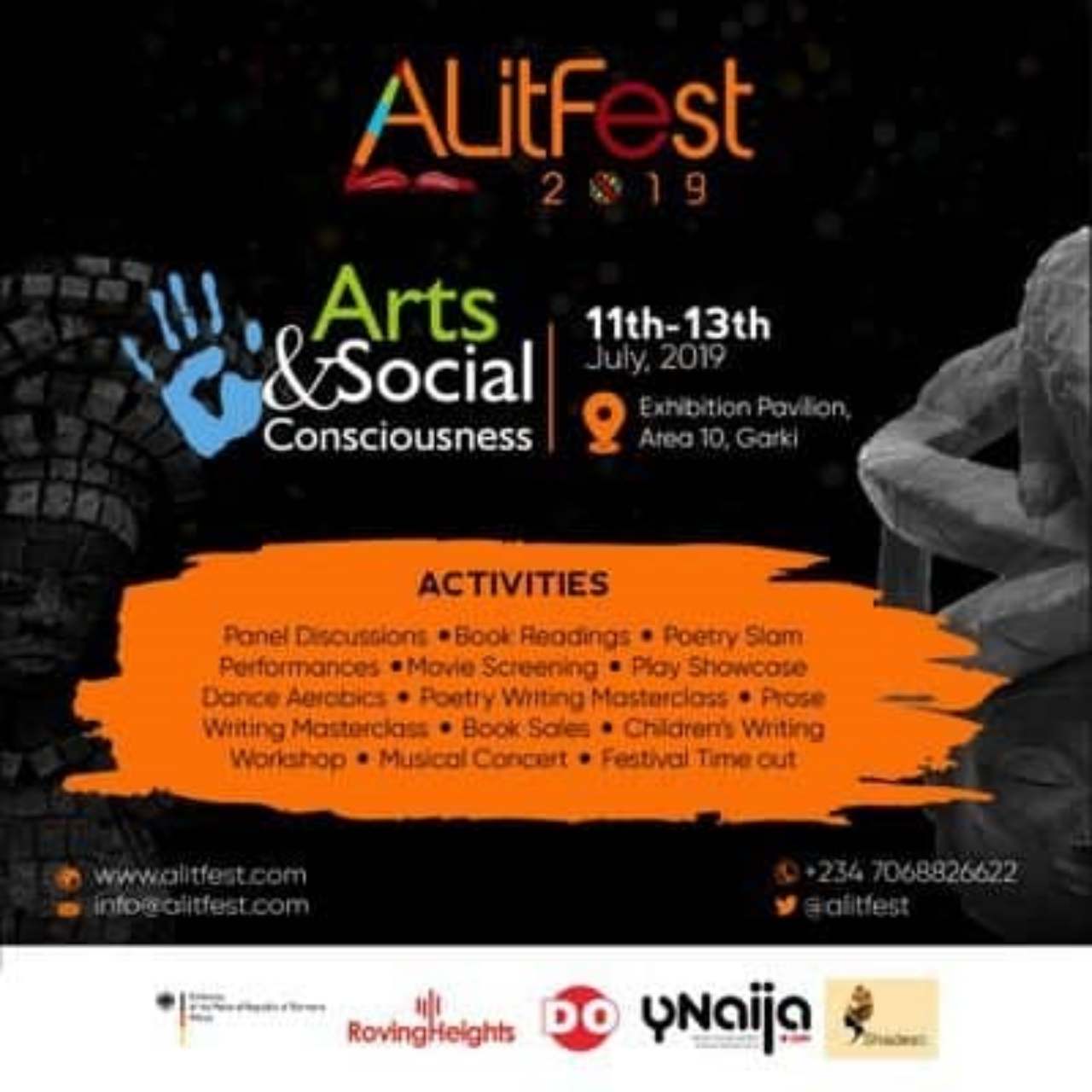
The Abuja Literary Society (ALitFest) held its maiden edition in 2018. Owing to the success of ALitFest 18, the team decided to make it an annual event hence the Abuja Literary Festival (ALitFest) 2019 which took place on the 11th -13th of July, 2019 at the Exhibition Pavilion, Abuja Nigeria.
This year’s theme was ‘Arts and Social Consciousness’ aimed at examining how Art can change the world and be a socially conscious tool across the different ideological leanings that exist globally and more specifically in Africa and Nigeria in particular. The opening ceremony of ALitFest 19 was laced with music and poetry performances as expected of a literary festival. After the opening ceremony which had in attendance high-level guests and participants, the festival was set in motion with two panel discussions first on Sexuality, Birth rates and the 21st Century woman. This panel discussion was not without a lot of stir owing to the topic, the panellists and the environment of discussion, unearthing issues such as increase in teenage pregnancy and its resultant birth rate increase, poor parents-children type of sex education, characteristics of the 21st century woman, what sexuality is, and what it is not, etc. Guests on the panel were (describe them with an adjective or phrase on what they do. Check the next group done for reference) Rafeeat Aliyu, Hauwa Booth, Ayodele Olofintuade and Safiya Ismaila Yero with Dr. Inya Ode as the moderator.
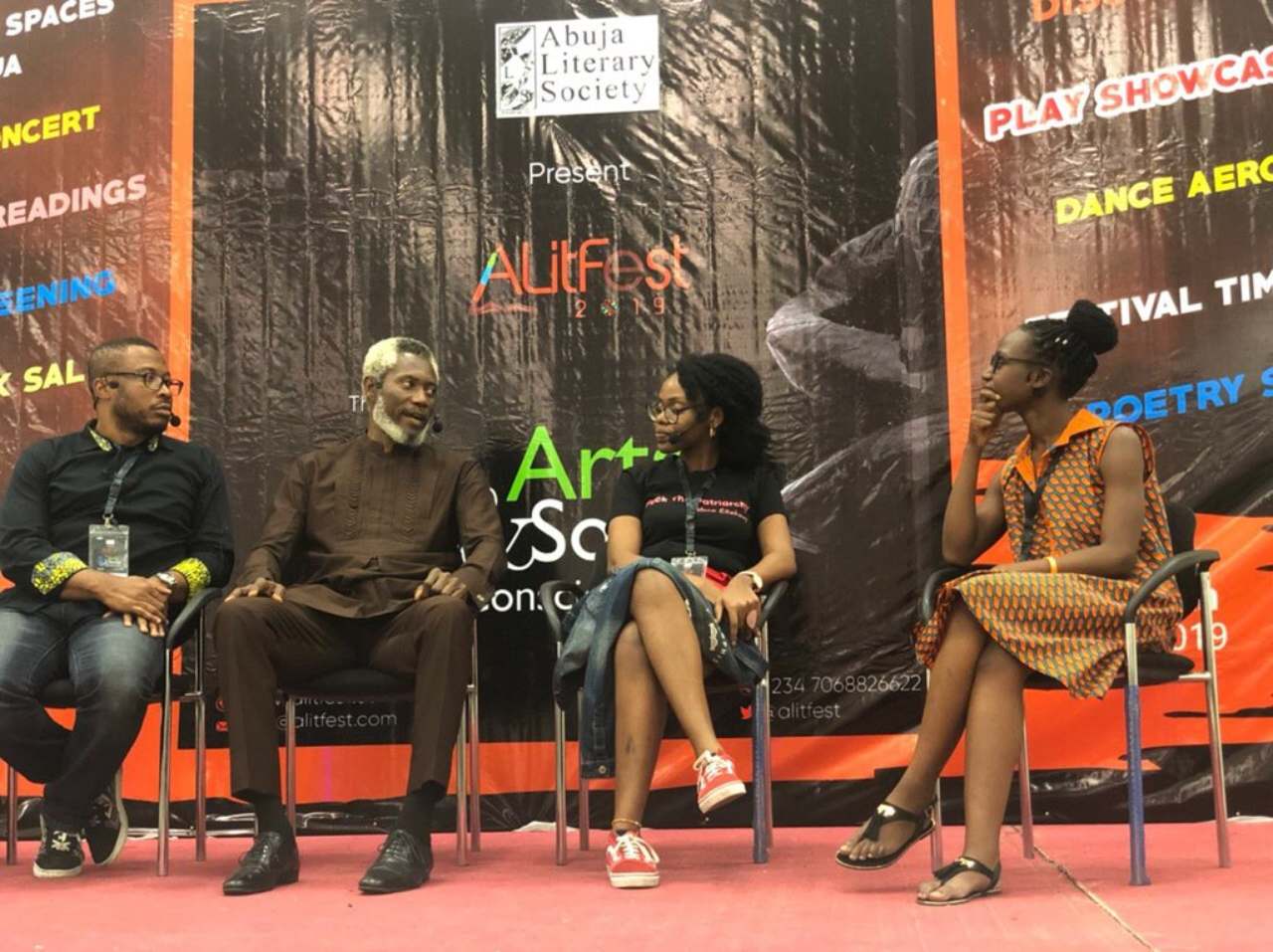
The second panel on “Telling Nigerian Stories on the big screen” was moderated by COAL’s Director of Communications Jennifer Dafwat. She led panellists into in-depth discussions on what characterizes a Nigerian story and who should tell it; issues of mediocre scriptwriting; union and synergy of writers and filmmakers as it affects the end user and issues of commercialization and earnings from storytelling and film productions. On the panel was Aishat Abiri, writer of the long-running TV show Tinsel, producers of the groundbreaking movies Up North and 4th Republic Edited by Effiong and Bem Pever respectively.
Immediately after the second panel discussion was the movie screening of 4th Republic. A movie directed by Ishaya Bako portraying a heated political situation akin to what is obtainable in present day Nigeria. The movie followed the story of its main character, Mabel King, a dogged, disciplined, woman who ran for the office of the Governor of Confluence state and lost to violence and rigging. The story uncovers the truth behind the mysterious death of her campaign manager and how she sought redress on elections result via an election tribunal. Some themes in the movie include, election violence, the frailty of the human will and conscience in the face of popular opposition, family values, godfatherism, bullying, the need to hold public officials accountable, the prevalence of getting rich quick schemes among youths, etc. At the end of the movie, the executive director, Ummi Yakubu pointed out that the purpose of the movie was to serve as a mirror for Nigerians. At the close of the first day of ALitFest, the festival held hopes of a fun and memorable experience.
The second day of the festival was full of panel discussions amid art exhibitions that lasted the duration of the festival. Other marks at the festival were the different stands manned by booksellers, human rights and other social impact organisations who were creating awareness, different food and drink vendors and others. The highlight of ALitFest Day 2 was the 3 rounds Abuja Literary Poetry Grand Slam. The judges were COAL’s Co-founder/Director of programs, Daisy Odey; poet, author and architect Basiru Amuneni, author Richard Ali and Hajjio Isah. The slam which started with about 35 contestants competing for the grand prize, had 16 contestants at the end of the first round 1 which allowed 1 minute for each poet. The second round allowed 2 minutes for each poet and ended with six poets making it to the last round. The last round allowed 3 minutes for each presentation and it ended with the three finalists. Lukman Hussain was the winner with N200,000 cash prize. COAL Ambassador and Program Volunteer, Adekunbi Lardo came in second place winning the sum of N100,000 cash prize and an additional N100,000 gift cash from Mr. Toni Kan, the mayor Lagos who termed her “his favourite poet” and the third-place got N50,000 and an additional N50,000 cash gift from Mr. Toni Kan.
The panel session which preceded the Slam was about Bringing Poetry to Todays Generation: Challenges, Potential and Opportunities moderated by Hajjo Isa with guests as COAL’s Co-founder Daisy Odey; poet, author and architect Basiru Amuneni and Richard Ali.
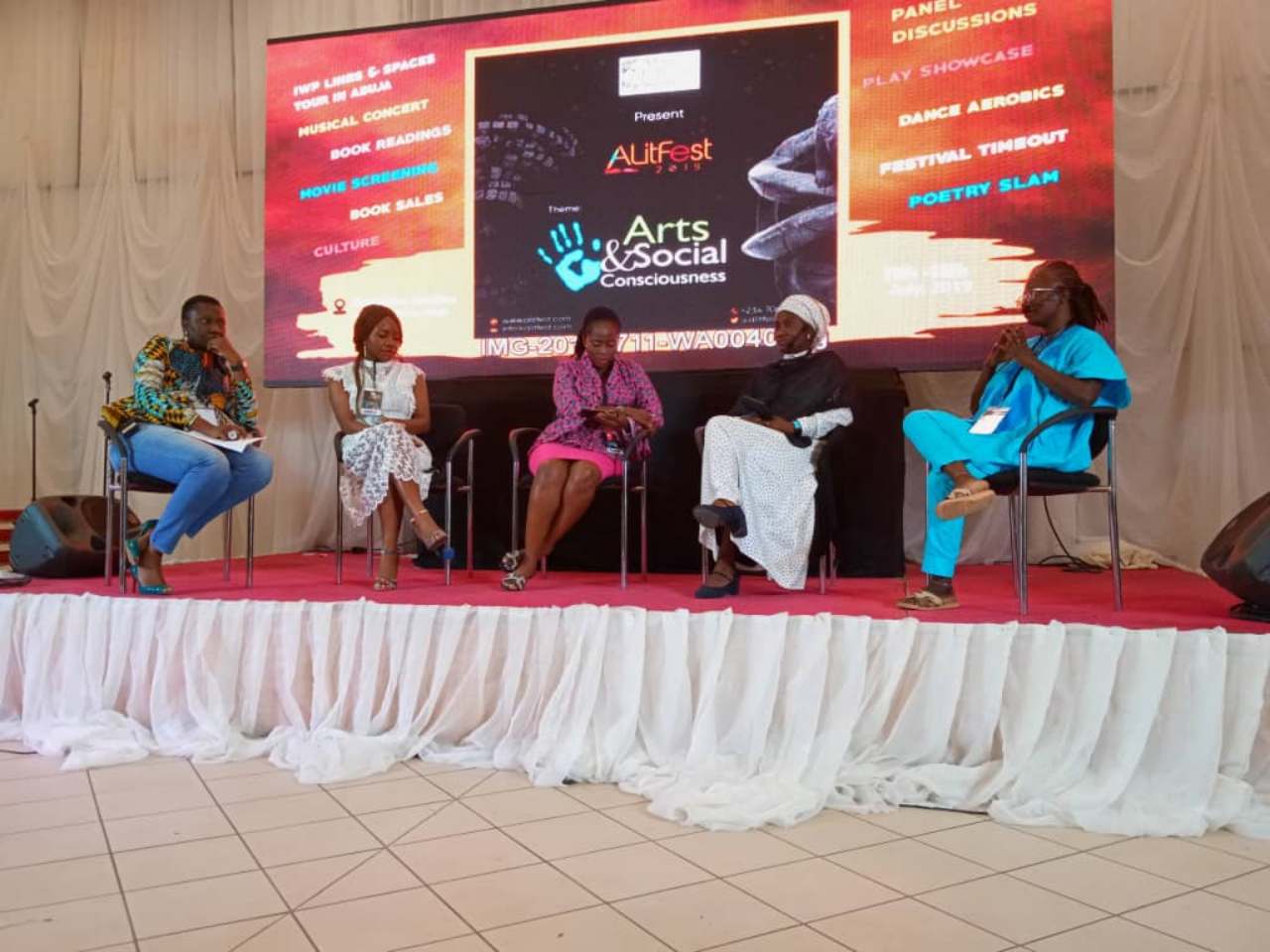
Day 2 featured panel discussions on topics such as Satire, Advocacy and Civic Engagement; Political Reportage, Press Freedom and Responsibility; Conflicts, Resentments and Historical Narrative; Writing about Mental Health and Publishing, and the challenges of book accessibility.Day three brought mixed feelings with it the excitement of the day ahead but also the sadness of the festival coming to an end. The day began with a Yoga and dance aerobics session after which was full swing panel discussions amid other festival activities. The festival came to a close with an epic performance of ‘Wedlock of the gods’ by Zulu Sofola. It was acted out by a wonderful cast who brought to life every scene of the play. It is said that it takes a community to raise a proper child and same goes for putting a festival together. At the end of the third day’s proceedings, appreciation was given to volunteers, sponsors and everyone who contributed to the success of the festival. After the vote of thanks was given, the Abuja Literary Festival (ALitFest) 19 came to a close with a party.
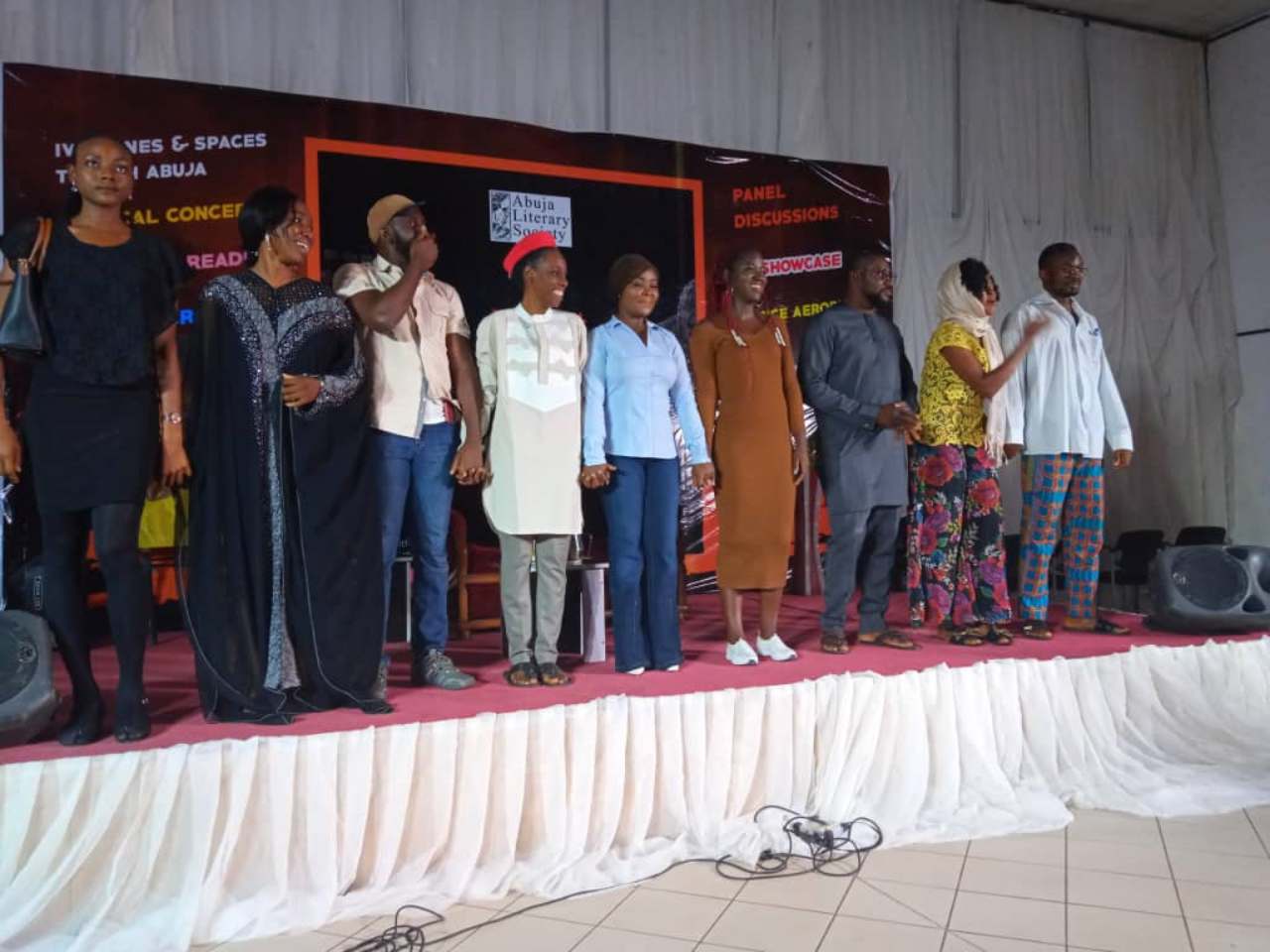
Overall, the festival can be said to be educative and entertaining. The meet and greets, the book stands, the food stands, the plethora of beautiful art pieces, paintings, African crafts and accessories that were available for sale reminded one of a sort of modern day museum, meets party, meets literature, meets intellect, meets Nigeria. in the form of earrings, chokers, bags and so on. ALitFest 2019 was another step towards the success of literary festivals and advancement of literacy culture in Abuja and Nigeria as a whole that should definitely be improved upon and sustained.
Hunger On The Scale Of Social Justice
The concept of community and collective action towards social change powered by young people in Africa is utopian because the lack of basic human resources is an impediment to people’s participation and objective reasoning in the fight for social justice. There is an instinctive awareness of survival engraved in the social construct of the African society and this drive for survival has made young people think less of the community or the active role they ought to play in demanding and working to get the change they deserve.
There are other dynamics affecting collectivism towards social change in Africa, dynamics such as religion and ethnicity. However mundane these are, the sad realities do not negate the basic universal needs of humans such as shelter, food, water, healthcare, etc. Ironically, these are the basic needs young people struggle to access in different communities. It is only logical that people thinking about where to get their next meal are likely not going to be bothered about the community, civic engagement or the collective impact needed to drive real change.
Africa which has the youngest population in the world, with about 200 million people aged between 15 and 24, has a current trend indicating that this figure will double by 2045, according to the 2012 African Economic Outlook report prepared by experts from the African Development Bank (AfDB), the UN Development Programme (UNDP), the UN Economic Commission for Africa (ECA) and the industrialized countries’ Organization for Economic Cooperation and Development (OECD), among others. According to the AfDB, while six of the 10 fastest-growing economies in the world are in sub-Saharan Africa, the unemployment rate for the region is 6%. In all these, young women feel the brunt of unemployment even more severely. The AfDB found that in most countries in sub-Saharan Africa and all of those in North Africa, it is easier for men to get jobs than it is for women, even if they have equivalent skills and experience.
It is also progressive to see other parts of the world, changing and recognizing the importance of youth voice and how this is a prerequisite element for any meaningful growth in society. Some African leaders, on the other hand, are trying their best to stifle youth voice by having them worry about basic resources they deserve and dividing their people along ethnic, religious and political lines. These dynamics go to prove why youths are not socially conscious in being actively engaged in programmes that should uphold the community as opposed to individuals.

The real poverty in Africa isn’t that people live on less than 1.25 U.S dollars per day, the real poverty is not recognizing the power in youth voice for the greater good of their communities through collective action towards social change. If poverty, unemployment, bigotry, corruption and the desire for equity doesn’t spur African youths to utilize their power in holding their leaders accountable, then it is not likely that anything else will.
The lack of access to services that meet the basic human needs of food, safe drinking water, sanitation facilities, healthcare, shelter, education, and information is affecting the active participation of youths civically and in fostering the collective good of communities in Africa. There is a need for rapid employment opportunities within the social sector in the form of youth programmes tailored towards community impact, that not only amplify youth voice but also empower youths technically, financially and socially.
however, Nigeria is a peculiar case in the talk about Africa’s development because as the most populous country in Africa with a population of about 200 million people, having about 70% of her population below the age of 35, it is expected that Nigeria should take the front row in ensuring that youth voice is recognized and respected across board. However, it is sad that Nigeria just recently modified her National Youth Policy, with the age bracket for the classification of youth formally from 18 – 35 years to the latest policy indicating that youth is an individual from 15 – 29 years. However timely this is, it is late and the process is probably not as inclusive of at least 50% of the youth population in Nigeria.
There is, therefore, a need for community and youth-centric programmes that empowers young people technically, financially, educationally, civically and socially, thereby tackling the rising issues of unemployment, voter apathy, vote-buying, ethnoreligious extremism, drug abuse and other social vices. Having such programmes and youth-centric centres situated in communities will not only empower young people but will amplify their voice by giving them a seat at the table where decisions are made, and through community dialogues, their representatives and key stakeholders are held accountable locally and nationally.
The quest for social justice needs a collective action where youths are both the beneficiaries and active participants in its struggle. There are no quick fixes to getting young people engaged in African communities if Africa doesn’t realise that meeting the basic human needs of its people is the prerequisite element for any meaningful youth engagement across communities. Youths play a critical role in the fight for equity and inclusion, and when docile or uninterested in their communities, they become victims and accomplices to the injustice they have been subjected to by their leaders.
The 2019 Linda Ikeji Prize for Literature

The African Indie Writers Review (AFIRE) ejournal is happy to announce The 2019 Linda Ikeji Prize for Literature.
This is going to be an annual event.
The Prize: N1,000,000.00 (One Million Naira)
The Need:
African Indie-Writers Review (AFIRE) is an e-journal strategically positioned to hold out a hand to new, contemporary and audacious African writers most interested in taking their work to a wider world. We now live in a global village of both happy and sad magic, where technology levels the opportunity gap between those who have been seen and those who have much to show but have not been heard from. There is one thing we all must agree on: Africa never stopped talking, from every nook and corner. Sometimes we are forced to talk, as the late Christopher Okigbo puts it, ‘without voice or audience’. But Africa keeps talking. Today we must find both our voice and our audience inside our own communal cry. Silence should never be an option. We must keep our fires burning.
Call for submission:
We are now receiving submissions for the 2019 Linda Ikeji Prize for Literature. All entries should be forwarded to: afire18@gmail.com
DEADLINE for submission: June 30 2019.
No material submitted after 11:59pm on June 30 2019 will be considered.
CATEGORIES
There are six categories for material to be submitted to AFIRE:
Fiction, Prose – full length novels: published, self-published or unpublished
Fiction, Prose – short stories: published, self-published or unpublished
Non Fiction – published, self-published or unpublished
Poetry – collections: published, self-published or unpublished
Drama – published, self-published or unpublished
Social media essays – collections: published, self-published or unpublished
Requirements
All materials should be submitted in Microsoft Word file format. Pdf files are allowed for only poetry submissions where original format is considered a critical part of the aesthetic presentation. Fonts should be size 12 in all submitted materials.
Materials could be of any topic and theme, as long as it demonstrates a clear and undisputable motion for growth and development, enlightenment and humanity on the continent. New African writers in diaspora holding valid passports of any African country are eligible to participate.
The decisions of the judging panel are final.
Source:
Linda Ikeji blog
Free and Financially Rewarding Opportunities for Writers
The June 2019 edition of “Writing Life Essentials,” a monthly hand-curated list of contests, grants, scholarships, submissions calls, and awards, with a focus on opportunities that are at least one of the following: local, free to apply, and/or committed to celebrating and supporting writers from historically marginalized communities. We do the research, so you have more time for what matters: the writing. Or, the summer solstice festivities. That matters too.
Contests & Awards
Eleanor Taylor Bland Crime Fiction Writers of Color Award
Fee: $0; Award: $2,000; Deadline: June 9th Sisters in Crime presents: The Eleanor Taylor Bland Crime Fiction Writers of Color Award is an annual grant for an emerging writer of color. The award is intended to support the recipient in crime fiction writing and career development activities. An unpublished writer is preferred, however publication of several pieces of short fiction and/or up to two self-published or traditionally published books will not disqualify an applicant.
2020 Vilcek Prize for Creative Promise in Literature
Fee: $0; Award: $50,000; Deadline: June 10th, 5pm EDT The Vilcek Foundation is seeking immigrant applicants for the 2020 Vilcek Prizes for Creative Promise in Literature. Foreign-born literary artists working across a variety of genres are invited to apply, including fiction (novels, novellas, short stories, and graphic novels); nonfiction (memoir, creative nonfiction, general nonfiction, book-length journalism, and graphic nonfiction); and poetry. Applicants should have published at least one full-length book (not self-published), been born outside of the United States, and be 38 years of age or younger.
Fee: $0; Award: $50,000; Deadline: June 10th, 5pm EDT
Louise Meriwether First Book Prize
Fee: $0; Award: $5,000 & Publication by the Feminist Press; Deadline: June 28thThe Louise Meriwether First Book Prize is open to fiction and narrative nonfiction by women of color and nonbinary writers of color. Poetry, plays, or academic texts are not accepted. One winner will be awarded a $5,000 advance (half at the time of the initial award and half upon publication) and a contract to publish their book with the Feminist Press in print and digital editions in spring 2021.
Key West Literary Seminar’s Emerging Writer Awards
Fee:$12; Award: Full Tuition for January Seminar and Writers’ Workshop Program, Round-trip Airfare, Lodging, A $500 honorarium; Deadline: June 28th
The Marianne Russo Award, Scotti Merrill Award, and Cecelia Joyce Johnson Award recognize and support writers who possess exceptional talent and demonstrate potential for lasting literary careers. The Merrill Award recognizes a poet, while fiction writers may apply for either the Johnson Award (for a short story) or the Russo Award (for a novel-in-progress). Writers of any age who live in the United States and have not yet published a book with a major publisher are eligible to apply.
Fee: $0; Award: $15,000; Deadline: June 30th The award is open to authors who have published a book-length collection of fiction or at least three short stories or novellas in commercial magazines or literary journals. Winners will receive a cash prize of $15,000, publication by the University of Pittsburgh Press, and support in the nation-wide promotion of their book.
28th Annual Hard Times Essay Contest
Fee: $25, Award: Varied for 1st -3rd Place; Deadline: June 30th
In 5,000 words or less, write about a difficult time in your life, how you got through it, and how it changed you. Winning stories will be chosen for originality and creative writing style.
Nowhere’s Spring 2019 Travel Writing Contest
Fee: $20, Award: $1,000, with publication in Nowhere granted under FNASR; Deadline: July 1st Send Nowhere your stories that possess a powerful sense of place. They can be fiction, nonfiction, poetry or essay, but do specify which genre upon submission. Entries should be between 800-5000 words (poetry may be any length) and must not have been previously chosen as a winner in another contest.
Fellowships, Conferences & Residencies
Apply for a Vermont Studio Center Fellowship
Fee: $25; Deadline: June 15th25 VSC fellowships are open to all artists and writers living and working anywhere in the world. These awards are for residencies scheduled between September 2019 and May 2020. Every VSC residency opportunity includes: private room, private studio space, all meals, and full access to evening programs and events.
Apply for a Maine Artist Fellowship
Fee: $0; Award: $5,000; Deadline: June 20th A fellowship is given annually to a poet, fiction writer, or creative nonfiction writer who has lived in the state of Maine for at least one year. The fellow is expected to reside in the state for the year of the fellowship. Writers enrolled in a degree-granting program are ineligible. Using the online submission system, submit up to five poems of any length or up to 20 pages of prose and a resume by June 20th.
Apply for the Fall 2019 Open City Muslim Communities Fellowship
Fee: $0; Deadline: June 28th, 11:59pm EST; NYC-based The Open City Muslim Communities Fellowship is a unique six-month opportunity for emerging writers of color from communities under attack from Islamophobia to publish narrative nonfiction about Muslim communities in New York City. Writers of color based in NYC from Muslim and Arab, South Asian, and North and East African communities are encouraged to apply.
Apply for the Fall 2019 Open City Neighborhoods Fellowship
Fee: $0; Deadline: June 28th, 11:59pm EST; NYC-based
The Neighborhoods Fellowship is a unique opportunity for emerging Asian American writers to publish narrative nonfiction over the span of six months on the vibrant Asian American communities of New York City. The Fellowship offers a $2,500 grant, skill-building workshops, and publishing opportunities.
Fear No Lit’s Submerging Writer FellowshipFee: $0; Award: Publication, Honorarium, Conference Registration, Book Planning; Deadline: July 31st The Submerging Writer Fellowship (SWF) from Fear No Lit will offer one writer chapbook publication, prize money, and more. Dedicated to the writers who feel left behind, down on their luck, and far from emerging, the SWF is here to pull one submerging writer out of the water. You’re eligible to apply if you have not yet had a book published, won no major awards/prizes, and currently not in an MFA/PhD program.
Jobs & Work Experience
Staff Writer Position at Boston College Magazine
Deadline: N/A
Under the direction of the editor, the staff writer will develop, research, and write news and feature-length articles for Boston College Magazine. In addition, the staff writer will help with editing and fact-checking, and develop value-added content for the magazine’s online edition. The qualified candidate should have a bachelor’s degree and at least one year of magazine writing and editing experience.
Beacon Press Internships for People of Color
Deadline: July 31st The Beacon Press Internships for People of Color program seeks to increase diversity and inclusiveness in the book publishing industry. Beacon Press offers internships in the Marketing, Publicity, Digital and Social Media, Production, and Editorial departments.
Education Director Position at MassPoetry
Deadline: July 31st
MassPoetry is seeking to hire an expert manager and experienced educator with a passion for poetry to serve as the full-time Education Director. They will manage MassPoetry’s unique suite of poetry programs, build robust partnerships with middle and high schools across the state, and oversee the expansion of our Poet-in-Residence program, among other responsibilities.
General Submissions
Free Submissions to The Bare Life ReviewFee: $0; Award: $750 for accepted full-length prose pieces and $300 for accepted poems or shorter prose; Deadline: July 31stThe Bare Life Review is accepting unsolicited manuscripts in fiction, non-fiction, and poetry. Submissions will be judged solely on artistic grounds. Your work may, but need not, deal explicitly with issues of immigration, exile, or refuge.
Free Submissions to Chicken Soup for the Soul
Fee: $0; Deadline: RollingChicken Soup for the Soul seeks submissions for their upcoming topics. Submit an inspirational, true story in the first-person and in 1200 words or less. Please see the story guidelines for more information.
Open Submissions to Kindred BooksFee: $0; Deadline: Rolling Kindred Books aims to put marginalized voices first. Fiction Editor Vanessa Willoughby is actively seeking narratives that make readers reflect and question the world around them. Your electronic submission of a manuscript pitch and 1-2 sample chapters will be accepted at brainmillpress.submittable.com. Up to two manuscripts may be submitted per person.
Call for Pitches: Essays for BMP Voices Column “Makers on Making”Fee: $0; Deadline: Ongoing Brain Mill Press is seeking emotional, radically authentic essays of 750-1,500 words to appear on its online content platform Voices, in the “Makers on Making” column. Brain Mill Press exclusively invites submissions from people of color, women, and LGBTQIA+ writers.
Article first appeared on
https://grubstreet.org
COAL’s Founder set to perform in Virginia U.S.A
COAL’s Founder Patience Andrew will be joining over 150 emerging leaders from 51 countries to shape the future of civic leadership at the Global Pathfinder Summit in Virginia USA from the 20th to 24th May 2019.
She will be sharing some thoughts on the need for strong and people-powered democracy for policy development in Education, reduction in mortality rate and youth leadership in Africa. She will also grace the summit with a poetry performance centering on themes of, race, insurgency, corruption, politics, democracy, economics and Africa’s continuous underdevelopment.
For more information about the Global Pathfinder Summit – http://globalpathfindersummit.org/
Art of Short Story Workshop
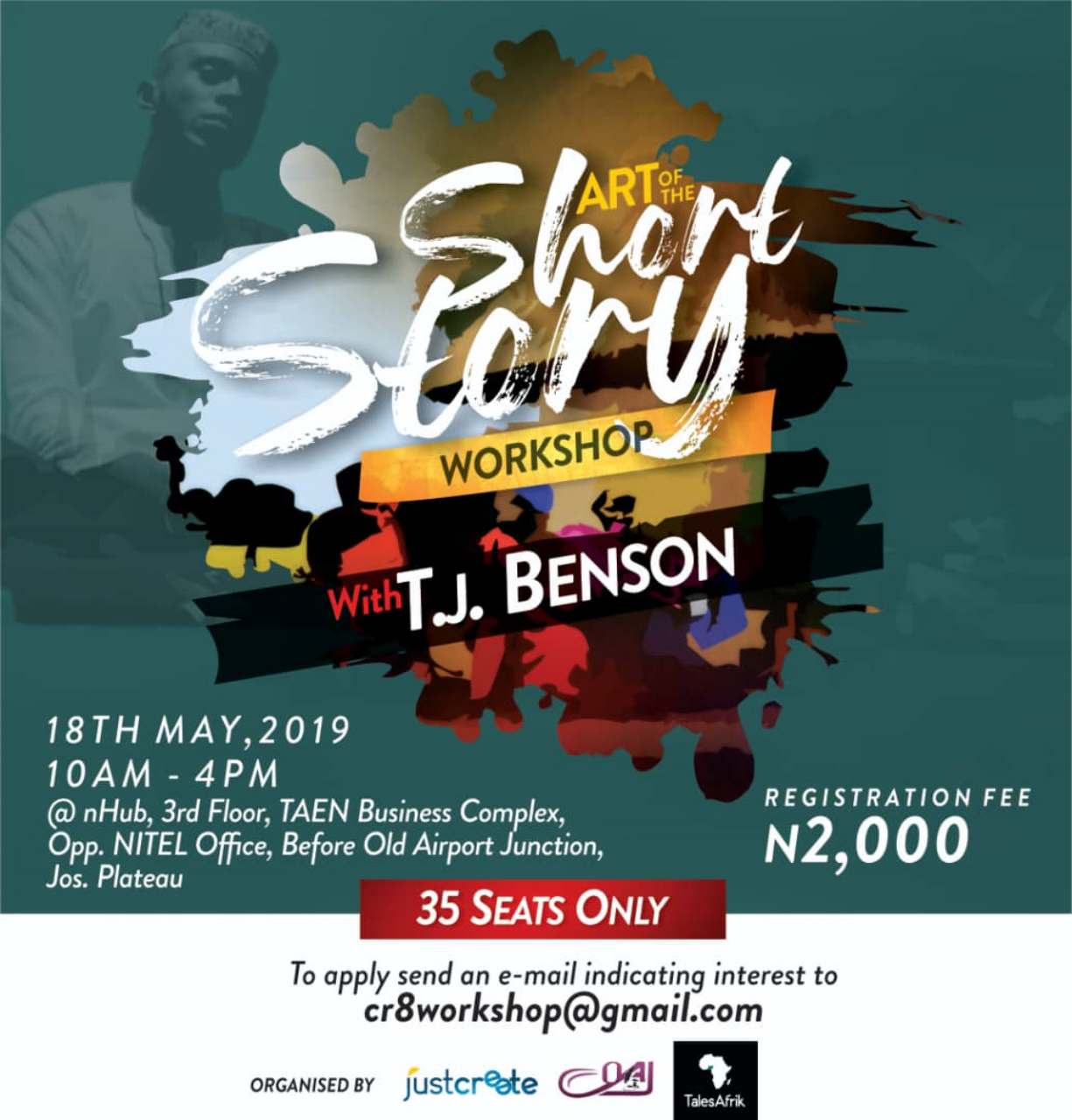
COALNG is teaming up with ‘Justcreate’ http://juscr8.com.ng/ and TalesAfrik
talesafrik.wordpress.com to organize a writing workshop ‘Art of Short Story.’ This combined effort is timely to the need for growth within the literary space in Nigeria.
The first edition will be launched on the 18th of May, 2019 at 10am to 4pm at nHub which is also a partnering organization of COALNG.
The facilitator of the workshop is TJ benson.
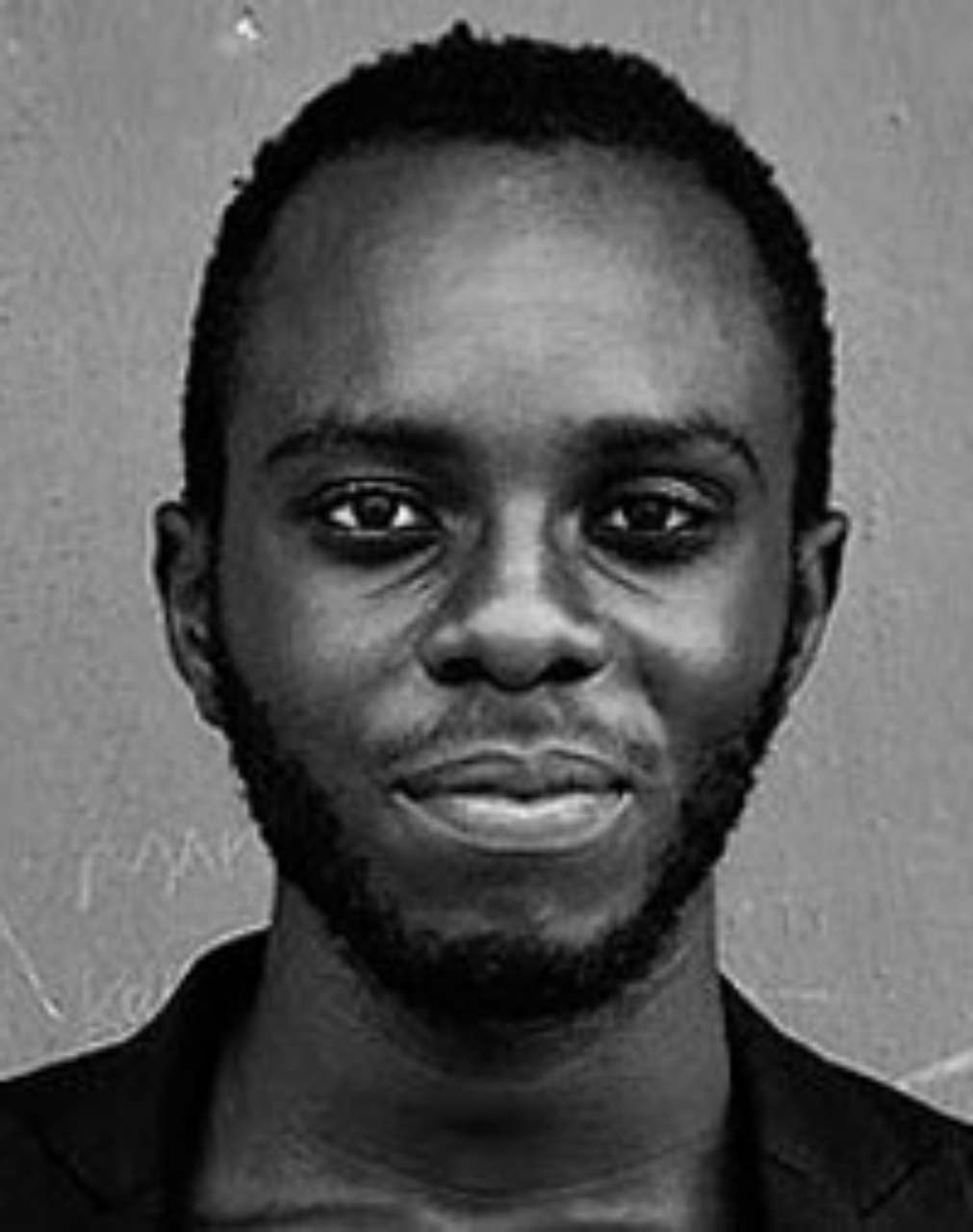
About TJ Benson
TJ Benson is a Nigerian writer and creative photographer whose work has appeared in several online journals like Jalada Africa, Expound and Bakwa magazine; in print magazines like transition magazine and more recently Saraba’s ‘transitions’ issue.
He is the author of “We Won’t Fade Into Darkness’ a collection of speculative short stories published by Parresia Publishers.
His chapbook of photography ‘rituals’ was published in downloadable pdf on sankofa magazine in 2015. His short story ‘an abundance of yellow paper’ was the joint winner of the amb-hbf contest in 2016 and this collection was shortlisted for the Saraba manuscript prize, he was the first runner-up for the 2016 short story day Africa prize themes ‘migration’ and he is a two time writer-in-residence at the Edebi writers residency Nigeria.
He currently resides in Abuja where he makes images when he is not writing and cooks to calm his nerves from time to time.
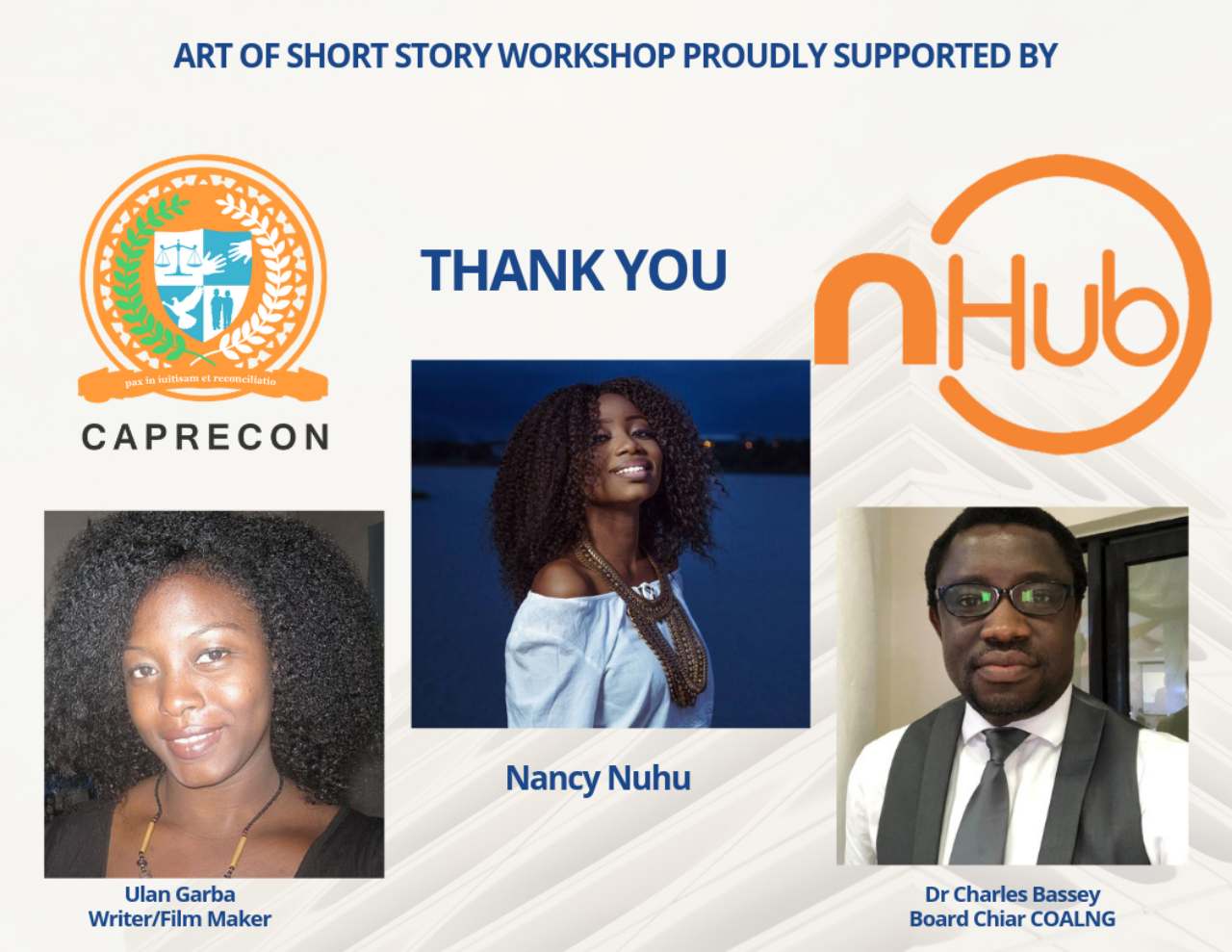
Open Mic
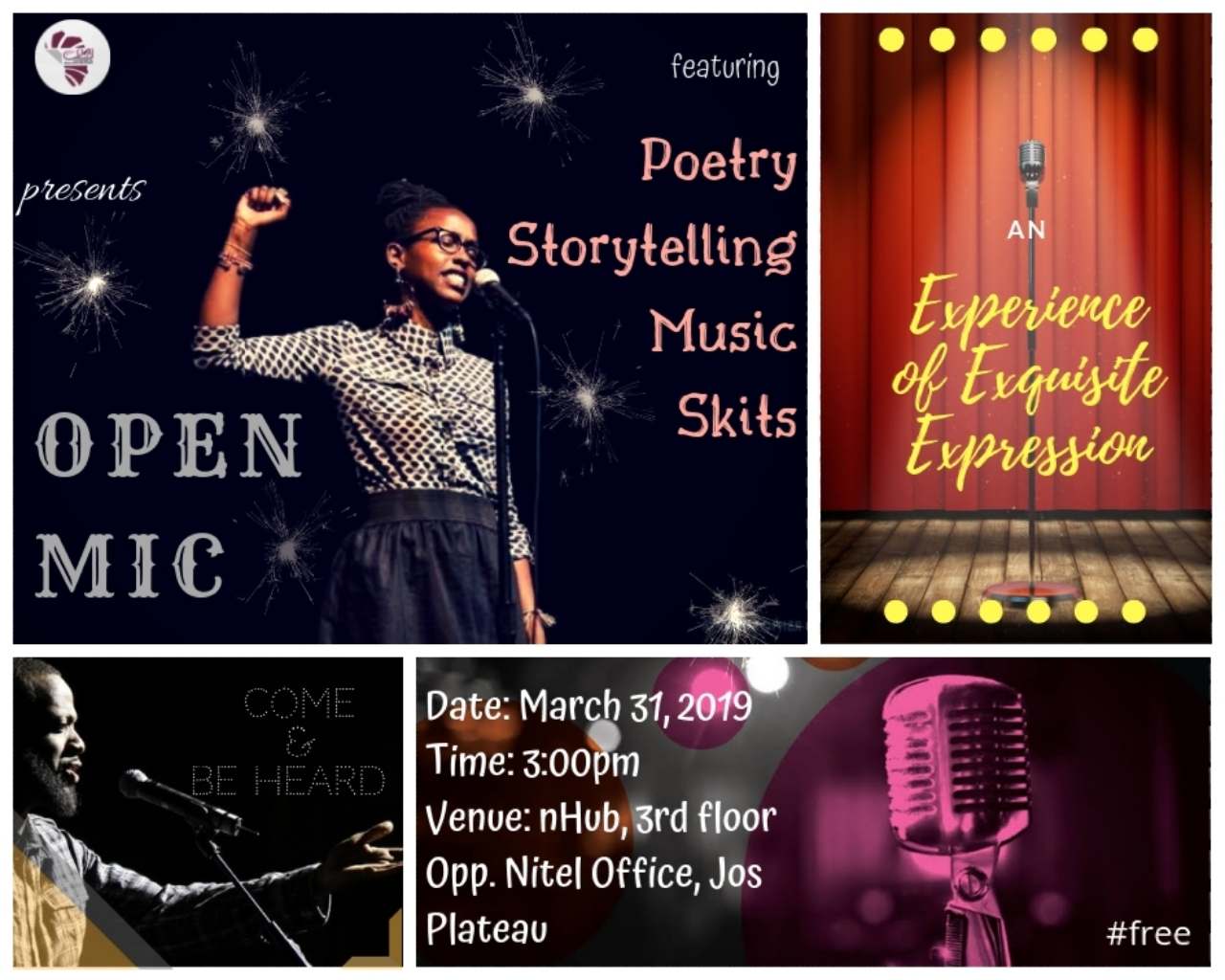
IT IS OPEN MIC GUYS
Are you a Poet, storyteller, artist or musician looking for an audience to listen and enjoy your original piece?
Custodians of African Literature COAL is creating an expressive and safe space for others to enjoy and critique your work.
Come early, register to perform and wait for your turn.
Date: 31st March, 2019
Time: 3pm, registration starts at 2:30pm.
Venue: 3rd Floor Nhub, Bluewhale building, opposite NITEL office, before old airport junction.
Come, be heard and perfect your skills.
For further info email info@coalng.org or call 0906 572 3243
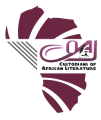
 Cart is empty
Cart is empty 
